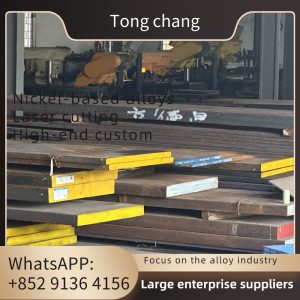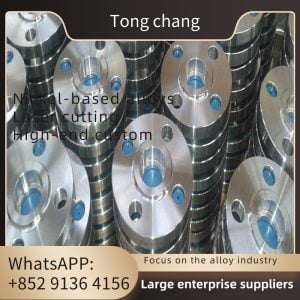| Product Name: | Stainless Steel Shaft | Standard: | As Per EN , DIN , JIS , ASTM , BS , ASME , AISI |
|---|---|---|---|
| Specification: | ASTM / ASME SA A291/A291M, A470/A470M, A920/A920M, ASTM A503/A503M | Size: | 150mm To 350mm, As The Drawing Request |
| Length: | 1 To 6 Meters Or As Per Client’s Requirement | Application: | Equipment Connection |
| Material Grade: | Stainless Steel 202,303,304,304L,316L,431, Etc. | ||
| High Light: | Martensitic Stainless Steel Shaft, AISI 431 Stainless Steel Shaft, Machine Connection Stainless Steel | ||
Stainless Steel AISI 431 / UNS S43100 / DIN 1.4057 Shaft for Machine Connection
Shaft is basically the rotating component of any machine, which is round in the cross section and is used for passing the power from one part to another or from the power producing machine to the power absorbing machine. For the transmission of power, one end of the shaft are connected with power source and the other end of the shaft are connected with the machine. Shaft can be solid or hollow according to the requirement, hollow shaft helps in reducing weight and provide advantage.
AISI 431 stainless steels are martensitic, heat-treatable grades with excellent corrosion resistance, torque strength, high toughness and tensile properties. Grade 431 stainless steels have considerable resistance to salt water, but they are less resistant to tropical water when compared to that of grade 316 steels. Grade 431 steels have overall corrosion resistance similar to, or slightly lower than, that of grade 304 steels. Grade 431 steels with a smooth surface finish perform well in tempered and hardened conditions. These steels, however, cannot be cold-worked owing to their high yield strength, hence they are suitable for operations such as spinning, deep drawing, bending or cold heading.
Typical applications of grade 431 stainless steels include the following:
1. Laboratory equipment
2. Marine systems
3. Beater bars
4. Pump and propeller shafts
5. Nuts and bolts
Composition ranges of grade 431 stainless steels
| Grade | C | Mn | Si | P | S | Cr | Ni | |
| 431 | min. max. | – 0.20 | – 1 | – 1 | – 0.04 | – 0.03 | 15 17 | 1.25 2.50 |
Mechanical properties of grade 431 stainless steels
| Tempering Temperature (°C) | Tensile Strength (MPa) | Yield Strength 0.2% Proof (MPa) | Elongation (% in 50mm) | Hardness Brinell (HB) | Impact Charpy V (J) |
| Annealed * | 862 | 655 | 20 | 285 max | – |
| 204 | 1345 | 1055 | 20 | 388 | 50 |
| 316 | 1295 | 1035 | 19 | 375 | 53 |
| 427 | 1350 | 1080 | 19 | 388 | # |
| 538 | 1140 | 965 | 19 | 321 | # |
| 593 | 1015 | 770 | 20 | 293 | 64 |
| 650 | 960 | 695 | 20 | 277 | 84 |
Grade 431 is frequently stocked and supplied in "Condition T", with specified tensile strength of 850 – 1000MPa.
* Annealed tensile properties are typical for Condition A of ASTM A276; annealed hardness is the specified maximum. Grade 431 is only rarely stocked in annealed Condition A.
# Grade 431 should not be tempered between 425 and 600°C, due to the low impact resistance associated with this temperature range.
Typical physical properties of grade 431 stainless steels
| Grade | Density (kg/m3) | Elastic Modulus (GPa) | Mean Coefficient of Thermal Expansion (μm/m/°C) | Thermal Conductivity (W/m.K) | Specific Heat 0-100°C (J/kg.K) | Electrical Resistivity (nΩ.m) | |||
| 0-100°C | 0-315°C | 0-538°C | at 100°C | at 500°C | |||||
| 431 | 7800 | 200 | 10.2 | 12.1 | – | 20.2 | – | 460 | 720 |
Equivalent grade 431 stainless steels
Grade | UNS No | Old British | Euronorm | Swedish SS | Japanese JIS | ||
BS | En | No | Name | ||||
| 431 | S43100 | 431S29 | 57 | 1.4057 | X17CrNi16-2 | 2321 | SUS 431 |
Advantages of Shafts
- They are less likely to jam.
- They need less maintenance in comparison to chain system.
- They have high torsional strength.
- They have high value of polar moment of inertia.
- They are very strong and less likely to be failure.
- Internal shape of a hollow shaft is hollow therefore they require less material.
- Hollow shaft have low weight in comparison with solid shaft for same value of torque transmission.
- They have high radius of gyration.








